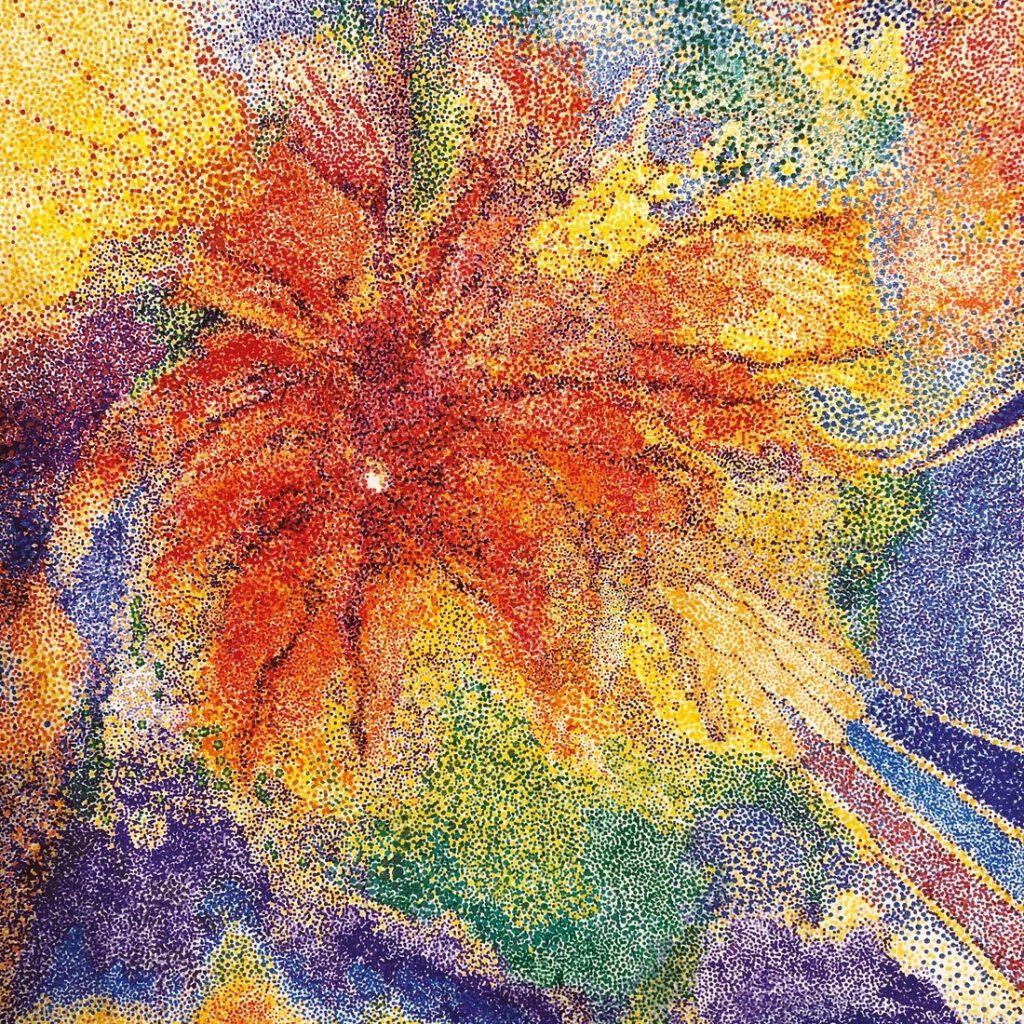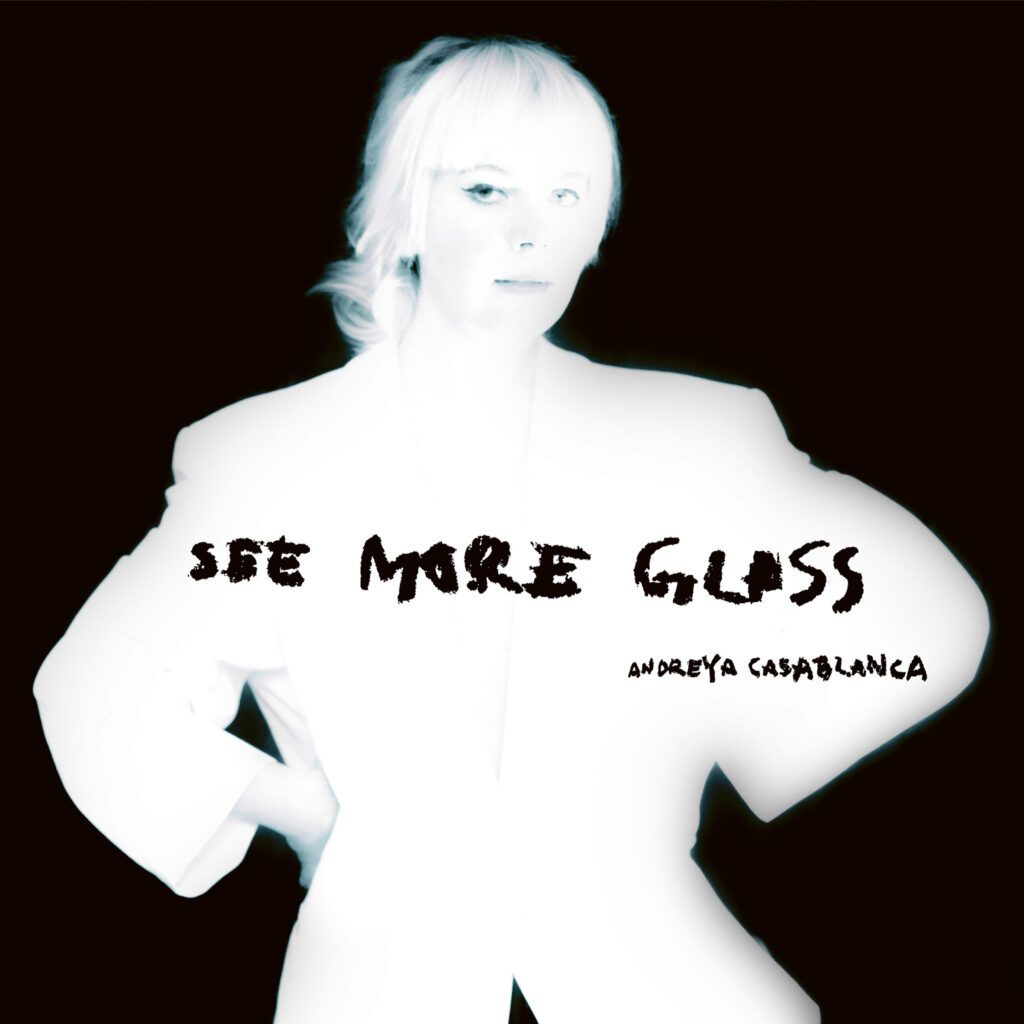
John Zorn turned 70 in September. And, as if he’s decided to celebrate by giving everyone else a gift, his label, Tzadik, has made its catalog available on streaming services. There was no PR announcement, because Tzadik has almost never done PR for any of its activities, but word spread quickly among the devoted, and now there are hundreds of albums’ worth of adventurous, boundary-breaking music to listen to that had previously been available only to CD buyers. (They sold MP3s via iTunes and Amazon, too, but you get my point.)
Zorn, a New York-based composer, alto saxophonist, writer, and general artistic catalyst since the 1970s, started Tzadik in 1995. He’d previously run another imprint, Avant, through the powerful Japanese label DIW. All but one of his famous genre-splicing band Naked City’s albums, and his Ornette Coleman-meets-Jewish-music quartet Masada’s studio work, came out on Avant. That made those records hard to find for a long time; in 2005, though, he remastered Naked City’s catalog and reissued it all as a 5CD box set on Tzadik. (That box is not streaming.) And he’s just announced a Masada box, about which more below.
The label’s name is a Hebrew word meaning “righteous one,” and Tzadik has always been run in a spirit of righteousness; it’s a not-for-profit label that from what I understand treats its artists very equitably (Jon Madof of Zion80, who’s made four albums for Tzadik, said in a recent interview, “The contracts are two pages and written in plain English”). They don’t do any PR for their releases or buy ads in magazines or anything else — they just put out the music. If artists on Tzadik want to get their albums reviewed anywhere, they have to hire publicists themselves, and most of them don’t. The whole operation really is a labor of love.
Zorn’s released almost 300 albums of his own music on Tzadik, but that’s only about a third of the catalog. It covers modern composition, avant-garde metal, free jazz, radical improvisation, and just about everything else you can imagine. A lot of it, of course, has nothing to do with jazz, and is thus beyond the scope of this column. I’m going to give you a very short introduction to Tzadik’s jazz side below, though, and leave you to swim around in the rest on your own.
Zorn’s most conventional jazz group is the quartet Masada, which featured trumpeter Dave Douglas, bassist Greg Cohen, and drummer Joey Baron. Their music combined Jewish scales and melodies with the improvisational principles of Ornette Coleman’s 1959-61 quartets. The pieces stretch and flow, and can be quite abstract, but they always return to a kind of twitchy, exuberant joyfulness. It’s celebratory music. They released nine studio albums and one three-track EP, all named after letters in the Hebrew alphabet, on Avant/DIW between 1994 and 1997. Tzadik has just announced a deluxe box set reissuing all that material and more; again, it won’t be on streaming services. But there are six live albums recorded at the Knitting Factory and Tonic, and in Germany, Spain, China and Israel, and they might give you an even more potent dose of the band’s music than the studio releases.
There’s also a Naked City live album, recorded at the Knitting Factory in 1989, streaming now, and that’s pretty red-hot. Naked City was an all-star band featuring Bill Frisell on guitar, Wayne Horvitz on keyboards, Fred Frith on bass, and Joey Baron on drums, playing extremely fast and complex compositions that jumped between jazz, grindcore, country, prog-rock, classical, and whatever else Zorn wanted to try, rarely sticking with one sound for more than a few bars at a time.
You can also check out the collected works of his trio Painkiller, with Bill Laswell on bass and Mick Harris (then just out of Napalm Death) on drums; their music was a blend of screaming free jazz sax, grindcore blast beats, and deep dub-noise bass. The second Painkiller EP, Buried Secrets, included guest appearances from Justin Broadrick and G.C. Green of Godflesh. The one time I saw them live, Harris was ill, so Ted Epstein of Blind Idiot God subbed in on drums, and they were still amazing. Painkiller are definitely not for everyone, but I love them.
Zorn has used Tzadik to support some of his favorite free and avant-garde jazz performers, too, often putting out ambitious albums that no other label would have touched. Trumpeter Jacques Coursil, who first emerged in Paris in the late 1960s and later became a teacher at the United Nations International School in New York (where a young Zorn was one of his students), hadn’t made a record for over 30 years — he’d been a professor and a linguist — when he released Minimal Brass, a set of multiply overdubbed pieces using circular breathing to create intense, swirling choirs of trumpets, in 2005.
In 2003, Zorn released One Atmosphere, a collection of avant-garde chamber pieces written by saxophonist and composer Julius Hemphill. The music included jazz flourishes as well as lush string quartet parts, and was assembled by saxophonist Marty Ehrlich, as Hemphill had died in 1995.
In 2008, Tzadik released Beyond Quantum, a collection of five improvised pieces played by saxophonist Anthony Braxton, bassist William Parker, and drummer Milford Graves, with Bill Laswell producing. The three had never played together before, though Parker had worked with each of the other two men separately.
The avant-garde jazz artist who has undeniably benefited most from his relationship with Zorn is trumpeter Wadada Leo Smith. Tzadik has released nine of Smith’s albums, with all kinds of instrumentation from traditional jazz quartets to laptops and electronics, and he’s played on two others, one of which is a thrilling live trio set with Zorn and drummer Susie Ibarra. Tzadik has also reissued Smith’s early, self-released albums from the 1970s, accompanied by 90 minutes’ worth of previously unavailable material, as the four-CD box Kabell Years 1971-1979.
In recent years, Zorn has been working with players much younger than himself, in the process bridging the gap between more straightforward jazz and his own idiosyncratic music world. He put together a series of almost three dozen albums called the Book Of Angels, which featured compositions he’d written as part of the broader Masada project. Each album showcased a different performer or group tackling some of these pieces, and it’s fascinating to hear what they bring to the material. Flaga: The Book Of Angels Volume 27 features a piano trio composed of Craig Taborn, bassist Christian McBride, and drummer Tyshawn Sorey. Paimon: The Book Of Angels Volume 32 (the last in the series) was performed by Mary Halvorson’s quartet with second guitarist Miles Okazaki, bassist Drew Gress, and drummer Tomas Fujiwara. One of the most beautiful volumes in the series, Tap: The Book Of Angels Volume 20, was given to guitarist Pat Metheny, playing more than a dozen instruments, and accompanied by drummer Antonio Sanchez.
Zorn has also formed some new jazz-adjacent groups in recent years, including the hard ‘n’ heavy organ trio Simulacrum (John Medeski on organ, Matt Hollenberg on guitar, Kenny Grohowski on drums, taking the jazz-rock fusion of Tony Williams Lifetime as a springboard into hard-charging prog-metal) and Chaos Magick, which is Simulacrum with second keyboardist Brian Marsella added. Then there’s Insurrection, a two-guitar quartet featuring Julian Lage and Matt Hollenberg, with Trevor Dunn on bass and Kenny Grohowski on drums. And most recently, he’s picked up the saxophone again, in the New Masada Quartet with Lage, bassist Jorge Roeder, and drummer Kenny Wollesen.
The best way to find your way through this stuff is by going to the Tzadik website and exploring. Unfortunately, on streaming services, most of the albums are credited to Zorn, because he’s the composer, rather than the musicians playing on them. But once you know what you’re looking for, you’ll find a lifetime’s worth of material to dig through. Zorn is an unstoppable compositional force, and his music possesses a shocking degree of variety once you really start listening.



